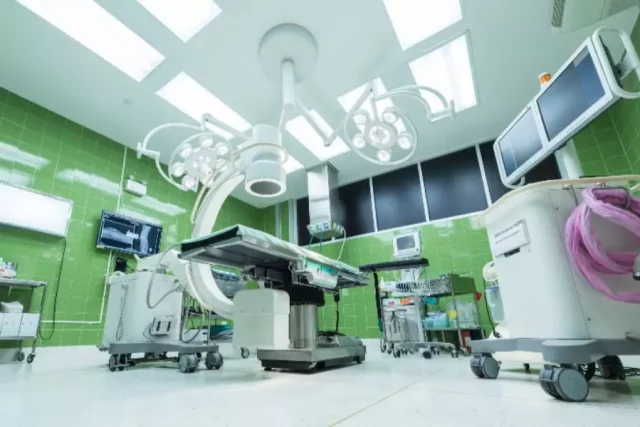When opening a clinic, there are a lot of things to consider and establish. For example, the financing of the practice, the purchase of equipment, materials, and clinical apparatus, hiring people to work at the clinic, taking care of legal needs, getting insurance, etc. Most of the time, all of these things are taken care of, but a well-structured security system is an important thing to set up when starting a clinical practice that is often overlooked or not regarded at all.
Procedures for security and safety should be taken seriously, just like all the other things that need to be thought about. To avoid security and safety risks and threats, you should put the safety of your patients and staff at the top of your list of priorities.
Setting up a clinic exposes you and everyone else in the building to a certain level of risk. For example, you may be very exposed and vulnerable to things like random acts of violence, threats, and abuse from some people toward patients, staff; especially frontline staff, the possibility of losing medical files and records or of it falling into the wrong hands, etc. These are just a few of the many bad things that can happen when a clinic has no or few security measures.
Good and standard security procedures create a safe and secure environment for all patients, staff, and visitors in and around the clinic. This keeps them safe and out of danger and keeps records and files from being tampered with or lost.
Here are some safety steps to follow when setting up a clinic.
1. Security Equipment
Security measures like CCTV cameras, PA or intercom systems, panic/duress alarms for staff, exterior lighting, video, electronic access control for the doors, intrusion detection alarm systems, barriers, etc., should be in place to protect patients, staff, and visitors. Even if a system is broken into, the damage can be kept to a minimum with this equipment in place. And these tools work well when they are put in the right place and used the right way.
2. Policy Placement
Certain policies, plans, and procedures can predict and deal with possible dangers, such as violence on display, theft, and other bad behaviour, etc. and help to stop threats from getting worse in your practice. These plans could include detailed information about your clinic’s weaknesses, risks, history, size, cultures, realistic functions, and layout.
3. Security Staff And Personnel
Any business needs to have effective and trustworthy security staff on ground. Sometimes, they can be an even better visual deterrent than CCTVs. These security personnel’s presence helps keep patients, workers, and visitors safe. Guards also help keep an eye on video surveillance, look for illegal items, check IDs, and limit access to certain areas. With their trained eyes, they can spot things that look suspicious right away and act on them.
4. Safeguarding Healthcare IT
Healthcare IT is a must-have in modern clinics because it makes it easier to manage health information and exchange it safely. Healthcare IT cuts down on paper filing and gets accurate records to the right people. It also helps improve health care by cutting down on unnecessary tests and getting records to patients. It can also be synced with internal systems like SharePoint or CRM so that notifications can be sent quickly.
IT in health care has many good benefits, but having all this information in one place is not one of them. If the information isn’t properly protected, it could get into the wrong hands or be shared with outsiders. That’s why it’s important to have a healthcare IT security plan which protects your healthcare IT and gives you a sense of peace that it can’t be breached from the outside. In addition, information is not secured without proper cyber security, which is a very important part of healthcare IT.
Thankfully, you can easily find a reliable dental IT service provider to help keep your clinic’s IT system secure and running smoothly. As seen at novacomputersolutions.com, they offer a range of managed IT services, including security and compliance solutions tailored to the healthcare industry. With their help, you can ensure that your clinic’s data is protected at all times.
5. Integrating Security And Safety Into Clinic Structural Design
When planning the clinic’s building, the safety and security of the building and the people in it should be taken into account from the start. Things to consider include making sure there is only one public entrance, putting other exit doors in the right places, and limiting how often they can be used. Also, other options may include building offices for safety and privacy, providing safe rooms or shelters, internal emergency communication, and escape routes for staff and patients in case of threats and emergencies before the arrival of law enforcement agents.
6. Staff Security Education
For the safety of everyone there, it is important to teach staff what to do if there is a security breach. By giving them security and safety training, especially for frontline staff, they can learn to spot the early signs of violence as well as know how to stop it from getting worse. They can also learn how to handle threatening or violent behavior. They should also be taught how to decide, act, and give orders as quickly as possible in the absence of the head or AOCs.
7. Develop Cordial Relationship With Emergency Responders
It’s important to encourage and foster a good working relationship with local emergency responders around you, like the police and firefighters. Having a good relationship with them makes it easy to get in touch with them in case of an emergency at the clinic. This will help reduce danger and threats and improve the outcome of emergencies.
8. Create Behavioural Response Teams
In cases where security personnel are absent, certain employees should be trained on behavioral response and conflict resolution. Possessing these skill sets will help cut down on cases of violence or unnecessary emergencies.
Security issues can greatly affect how well or poorly your clinic runs. Securing your building and the lives and health of the people who live or work there helps lower insurance, liability, compensation, and other costs that come up along the way. The peace of mind that security gives your patients and workers makes it easier for them to work and rest. When patients or employees come to your clinic, security concerns should be the last thing on their minds.
Good security has many benefits and helps you run a great clinic. However, when there aren’t enough security measures in place, security problems can also hurt the clinic by putting staff and patients’ lives at risk, making the clinic less peaceful, and causing a decrease in patronage.














